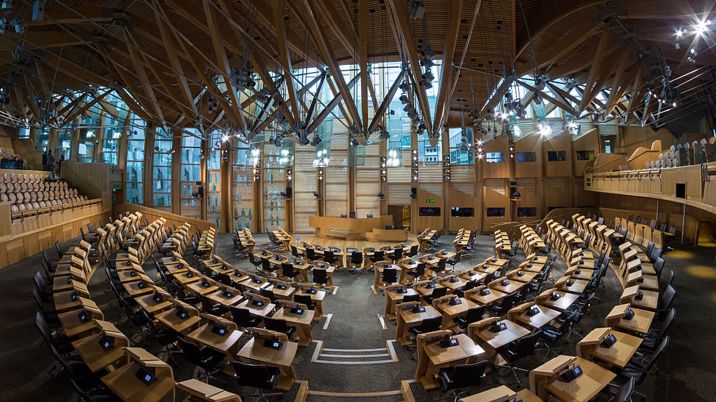
The SoE was responding to a call for evidence to the Scottish Government following publication of proposals to introduce a ‘reasonable person’ test to determine whether something is abusive or creates an incitement to violence under the new law.
In its written submission, the SoE said it had concerns over who would decide what was considered ‘reasonable’ and what safeguards would be put in place to ensure the standards were not altered in the future.
Ian Murray, executive director of the SoE, said: “The SoE’s stance regarding the protection of freedom of expression is interwoven with its work to maintain a free press and media throughout the United Kingdom.
“As part of its work, it seeks to highlight actions which it feels may pose a risk to those aims – and so also to the public’s right to know – either immediately or in the foreseeable future.
“The SoE is concerned that any attempts to create laws and regulations that, often with the best of intentions, seek to curtail freedom of expression in an attempt to limit or remove the threat of hate speech can be interpreted in a too draconian manner and lead to limits on press freedom. In the case of the proposed Hate Crimes and Public Order Bill now being considered by the Scottish Parliament, the SoE’s concerns centre around not just the effect this will have on media based in Scotland but throughout the United Kingdom.
“It must be stressed that the SoE understand the need to protect the public from threats of harm through violence and does not condone the use of threatening language. However, as the Justice Secretary has pointed out, just because someone feels language used by another is abusive should not mean their right to speak their mind freely should be curtailed unless, the SoE believes, it passes the threshold to become threatening behaviour.
“The use of the term ‘reasonable person’ to determine whether a threshold has been passed, in particular with concern to whether a comment is considered abusive, is obviously open to interpretation. Who will determine who is a ‘reasonable person’ for the purposes of this proposed law? Who will police its use?
“Even today we can see how small but vocal pressure groups can apply pressure to win backing for their cause. What safeguards will be put in place to ensure the litmus test of what or who is considered ‘reasonable’ and when and if that definition changes as society inevitably evolves?
“The SoE fears that unless there are safeguards put in place the ‘reasonable person’ test stands every chance of being highjacked and used to silence free speech and penalise a free media.
“At the very least, the definition stands the chance of creating a chilling effect of the UK’s media.”
The SoE has previously added its voice to concerns regarding the proposed legislation and that the Scottish Justice Secretary, Humza Yousaf, was being too hasty in attempting to push through the new Scottish Hate Crimes and Public Order Bill before the Scottish elections in May of this year. Last week the SoE signed an open letter to the Justice Secretary calling for the legislation to be delayed allowing proper scrutiny.
In its submission this week, the SoE said it could not back any of the proposed new defences in the bill aimed at protecting freedom of expression while the issue of how the definition of what constituted a breach of the legislation remained uncertain.
“There can be no fudging of the issue of the defence of freedom of expression which lies at the heart of our liberties,“ added Murray.
Previously, the Scottish Newspaper Society (SNS) has called for a full exemption from the proposed new bill for recognised media outlets.
SNS director John McLellan said, “As a safeguard against the triggering of police investigation into politically or ideologically-driven complaints against responsible publishers, we still feel the best way forward is for the legislation to carry an absolute exemption.”
John McLellan added: “It is far from ideal that something as fundamental as freedom of expression should be subject to behind-the-scenes horse-trading rather than an open debate, but the SNS hopes its amendment will feature in the new discussions and be included in the re-drafted legislation.”
The SNS called for an exemption to the proposed legislation for recognised responsible news publishers. The proposed exemption called for:
14. Responsible news publication exemption.
A news publisher or broadcaster, and its employees and contracted contributors, which independently scrutinises the activities of public institutions, will be exempt from prosecution under the provisions of Part Two if
- It holds a company and business address, and all details are available either in its titles and publications or in a readily identifiable location.
- It can demonstrate transparency and identification of authorship of all published and broadcast content.
- It carries legal responsibility for its published content.
- It conforms to industry-recognised standards and its journalists, broadcasters and writers conform to a publicly available code of conduct.
- Can demonstrate participation in a transparent complaints process (both legal and non-legal).
Keep up-to-date with publishing news: sign up here for InPubWeekly, our free weekly e-newsletter.












